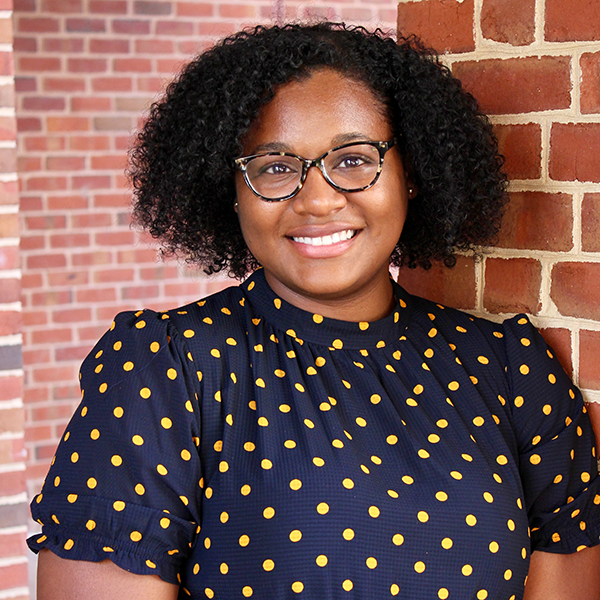
Making Math Education More Equitable

STEM Education PhD Graduate Jessica Forrester on Her Justice-Oriented Approach to Education.
Forrester, now at the University of Virginia, discusses her work focused on justice-oriented practices in education and her four years with Prepare2Nspire at UROC.
By the time Jessica Forrester finished her master’s degree in biomedical engineering in 2016, she already knew she wanted to do something different. But she still loved math, so she moved to Washington, D.C. and worked in a middle school as a STEM teaching intern.
Two years later, she was ready to finish her PhD journey; this time in STEM education at the University of Minnesota. She chose the University because of the specific research College of Education and Human Development (CEHD) Associate Professor Lesa Clarkson was doing, as well as Prepare2Nspire, a mentoring program Clarkson founded that supports students in 8th-grade algebra through high school calculus to pursue higher education in STEM fields.
We talked with Forrester, who is now a Mellon Postdoctoral Researcher in the School of Education and Human Development at the University of Virginia, about her current work focused on justice-oriented practices in education and her four years with Prepare2Nspire, which meets at UROC every Wednesday during the academic year.
Tell us about your postdoc work at the University of Virginia.
Primarily, I lead research efforts for the Youth Action Lab, a youth participatory action research initiative that partners with local schools and organizations to support youth using research methods to create change in their lives and communities.
My passion for social justice is grounded in amplifying voices that are not typically heard from in terms of communities and youth. Far too often students don’t believe their voices are valued. It is our duty as educators to support the positive development of young people, not just academically. We need to embody a culture of care and consider how we can use our power as adults to support youth as leaders of change.
In addition to promoting youth-led research, one of my main goals as a researcher and practitioner is to increase student engagement in curriculum development. For my dissertation, I developed mathematics activities that were inspired by the North Minneapolis community. I hope that will lead to the creation of a collaborative math curriculum between community members, educators, and students.
How did your time with Prepare2Nspire and UROC shape your scholarly journey?
Prepare2Nspire is now in its tenth year as a UROC affiliate and partner. Working directly with the program, I think the strength of relationships formed over the years demonstrates its importance. It is a dynamic community that has gone far beyond its original mission to become a true gem based on social, cultural, and academic support for the K-12 participants, tutors, and community at-large.
I was at UROC every Wednesday for Prepare2Nspire, so I met different UROC staff and was eventually offered an administrative assistant position. That position allowed me to learn more about the transformative work UROC affiliates do in the community, including YoUthROC, a community- and university-connected youth research team.
I held a second graduate assistantship with YoUthROC for a year and a half and that sparked my love for the use of youth-oriented research methods and led me to my current position at the University of Virginia. All of those experiences prepared me to apply and earn the Leadership in Equity, Inclusion, and Diversity Fellowship during my final year at the U.
The biggest impact UROC had on my scholarly journey was through the many people who supported me as a person and scholar. Associate Professor Lesa Clarkson and Instructor Elena Gullickson are lifelong mentors who helped me navigate the craziness of academia. UROC’s Executive Director Makeda Zulu always provided a listening ear and praise to keep me going through tough times.
CEHD Curriculum and Instruction Lecturer Abby Rombalski included me in various writing projects and introduced me to the world of youth participatory action research while UROC staff Velma Nelson-Thomas and Johneva McCoy made sure I had a snack and showered me with positive affirmations. I am forever grateful for the support system I had at UROC. It was my home-away-from-home and truly encouraged me to keep going through any struggles and frustrations I had while completing my degree.